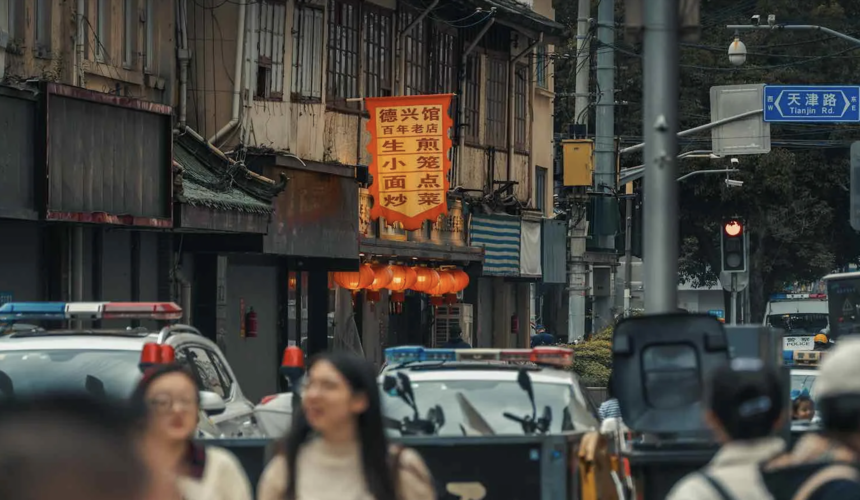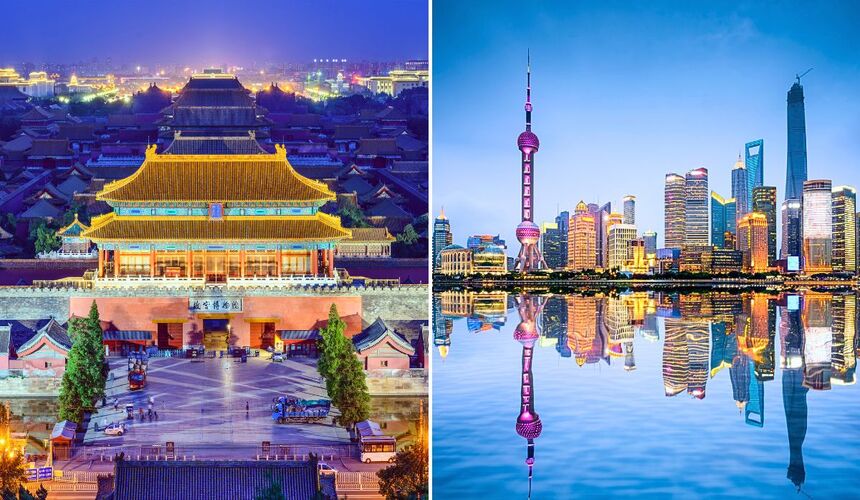
Is It Dangerous to Travel to China?
People republic of China is one of the oldest civilizations in the world. It attracts travelers with its rich history, beautiful landscapes, and lively culture. But for many first-time visitors, one lingering question often arises: Is it dangerous to travel to China?
People usually see China as a safe place for tourists. However, there are some things to know before your trip. Here’s what you need to know to stay safe and make the most of your visit.
Is China Safe for Tourists?
Yes, overall, China is a safe country for travelers with family members. Major cities like Beijing, Shanghai, Guangzhou, and Chengdu maintain low crime rates compared to many Western cities.
Violent crime is rare. However, petty crime, like pickpocketing, is more common in crowded tourist areas. This is similar to other popular places around the world.
Common Safety Advice for Mainland China Travel
1. Scams and Tourist Traps
Be wary of common scams in popular tourist areas, especially the travel scams near the attractions. If a stranger invites you to a special tea ceremony or art exhibition, it’s best to decline politely.
2. Language Barriers
Many people do not speak English outside large urban areas. Download translation apps like Google Translate. Also, carry hotel business cards in Chinese. This way, you can reach the hotel at the end of the day.
3. Internet Restrictions
China blocks websites and apps like Google, Facebook, and WhatsApp. To stay connected, install a VPN before you arrive, and consider using local apps like WeChat or Baidu Maps.
4. Health and Hygiene
Tap water is not safe to drink. Better to have bottled water and avoid raw street food unless it looks clean and freshly prepared. Carry hand sanitizer and tissues, as public restrooms may lack supplies.
5. Air Pollution
Take care your health and safety. Cities like Beijing and Xi’an sometimes suffer from poor air quality. Check daily air quality indexes and wear a mask on smoggy days, especially if you have breathing problems.
Outdoor Activities Advice for Tourist Safety
1. Hiking Safety
China has beautiful landscapes that attract outdoor lovers. However, hiking can be risky, especially in remote areas like parts of the Great Wall.
- Never hike alone in remote areas. Sudden weather changes, bad mobile reception, and injury risks can make a solo hike dangerous.
- Even when hiking with a group, share your plan, phone number, and expected return time. Give this information to your hotel or a trusted friend.
- Take care of your mental health. Pack plenty of water, wear appropriate gear, and check local conditions before heading out.
2. Road Travel Precautions
Drive a car in China as a non-native comes with stringent regulations. Violating these can result in severe repercussions. You must get a valid Chinese driver’s license and insurance because China doesn’t accept International Driving Permits. If you drive without a license, the police can fine you or even detain you.
- If the event of an accident. Do not move your vehicle until police arrive. Ensure all passengers are safe and out of traffic. If you hurt someone, you may have to pay and deal with legal trouble.
- Driving while drunk is a serious crime. Even small amounts of alcohol can lead to fines, detention, or jail time.
3. Rail Travel in China
China’s high-speed rail network is impressive and works well. However, travelers need to take some precautions for long-distance or overnight trips.
- You need a passport to purchase tickets and to board trains.
- On overnight trains, theft is a known risk. Thoroughly check your compartment for any suspicious items. Lock your cabin door once you’re inside and keep valuables close.
4. Taking Taxis Safely
Taxis are widely available in Chinese cities, but it’s important to be alert and proactive.
- Always use marked, official taxis, and avoid unlicensed rides.
- Let someone know where you’re going and note the taxi’s license number.
- Avoid disputes over fares. If you feel overcharged, stay calm. Always ask for a printed receipt (fāpiào), which includes the taxi number and fare details.
Travel Insurance for Travel to China
Travel to another country comes with potential risks. From getting sick to travel delays, having travel insurance helps you handle unexpected problems. Therefore, it is important to consider the insurance to reduces the risk.
1. Emergency Medical and Coverage for Hospital Stays
Healthcare in China at international hospitals can be costly. Most places ask you to pay everything upfront before they give you non-emergency care. A robust policy should cover:
- Medical consultation and treatment
- Hospital stays expenses
- Emergency dental care
- Emergency medical move to a better hospital or send back to your home country.
2. Personal Liability Insurance
In China, if you hurt some else, you might have to pay and could get in legal trouble. Personal liability coverage is essential for incidents such as:
- Traffic accidents involving injuries
- Accidental damage to property or injury to others
- Legal defense and settlement costs
3. Trip Cancellation and Interruption
- Visa problems, flight delays, or unexpected emergencies, this insurance helps you avoid losing money from things like:
- Pre-paid travel arrangements
- Flight or hotel cancellations
- Missing a flight or train because of delays
4. Loss or Theft of Personal Belongings
Petty crime such as pickpocketing can occur in busy tourist hubs. Insurance should offer reimbursement for:
- Lost or stolen luggage
- Theft of electronics, passports, or valuables
- Emergency replacement of travel documents
Travel Tips from Our Travel Consultants
- Do not get involved or go near protests.
- Be careful when crossing the road.
- Carry your passport and visa, especially in cities where ID checks are common.
- Do not discuss about Taiwan, Hong Kong, tibet autonomous region and xinjiang uyghur autonomous region issues in public. These topics are sensitive to Chinese government
- Check travel advice from your country’s government to stay updated.
- 110 for police and 120 for medical assistance.
- You must obtain a permit and take part in an organized tour to travel to Tibet.
- Be careful when using debit or credit cards. Use ATMs inside a bank or business.
- Avoid moneychangers on the street and use small bills or exact change.
- Never leave food or drinks unattended or in the care of strangers.
- If you have more than one passport, you should always travel using the same passport.
- Visa policies for you. Visa-free for 38 countries and 240-hour visa free transit policy.
China is a safe and rewarding destination for tourists. From the Great Wall to the Terracotta Warriors, China offers amazing experiences. These are for those who want to embrace its differences. Wish you can enjoy your journey with peace of mind before leave the country.




